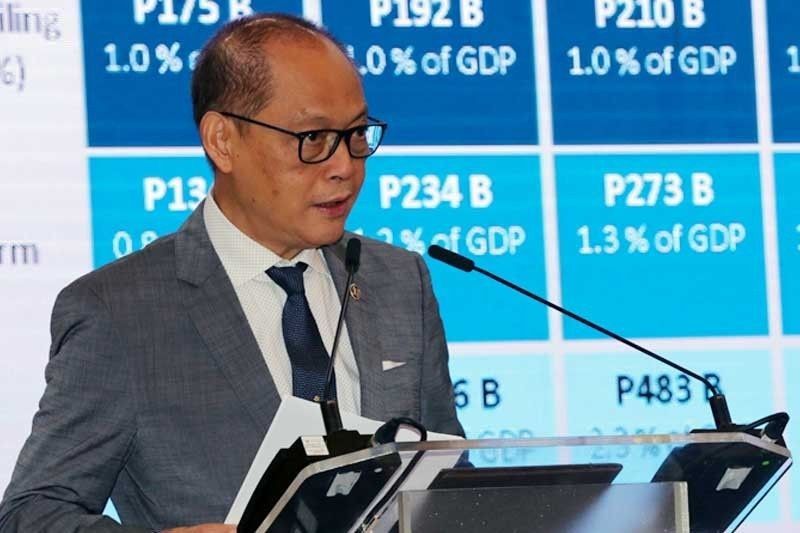Philippines, China to ink infra loan deals in November

MANILA, Philippines — The Philippine government is expected to formalize at least 10 financing agreements with China in November for the construction of the Duterte administration’s flagship infrastructure projects, the Department of Budget and Management (DBM).
In an interview, Budget Secretary Benjamin Diokno said both governments are firming up deals for the official development assistance (ODA) to be extended by China for projects under the government’s Build Build Build program.
Diokno said the 10 financing agreements would be signed during President Xi Jinping’s visit to Manila in November.
“At least 10 maybe. The agencies are reserving it for November during President’s Xi’s visit,” Diokno said.
Diokno said the projects include those in the first and second basket of infrastructure projects submitted by Manila earlier for possible Chinese financing.
According to the DBM, the first basket of projects include the P2.7 billion Chico River pump irrigation project, the P10.9 billion New Centennial Water Source - Kaliwa Dam project, and the P151.3 billion Philippine National Railways south long haul project.
Also included in the first basket were the Binondo-Intramuros and Estrella-Pantaleon bridges construction projects, but these will be financed through Chinese grants collectively worth P6 billion.
The projects were started on July 17 and are targeted to be completed in 2020.
Meanwhile, the second basket of projects include the Safe Philippines project phase 1, the Subic-Clark railway project, the construction of five bridges across the Pasig-Marikina River and Manggahan floodway, and the Ambal-Simuay River and Rio Grande de Mindanao river food control projects.
Diokno said Beijing is also keen on fast-tracking the loan agreement for the construction of an industrial park in New Clark City, Pampanga.
“They are also speeding up the industrial park. They are really interested in Clark,” the budget chief said.
Diokno then assured the public that the government would exercise due diligence in entering financing agreements with foreign development partners.
“These projects are scrutinized by various national government agencies and the inter-agency committees, requiring feasibility studies, detailed engineering designs, cost-benefit analyses including their environmental impact and social benefits, financial analysis of interest rates and budgetary impact, among other layers of project preparation and supervision,” he said.
The projects also go through the Investment Coordination Committee (ICC) and the National Economic and Development Authority Board for approval.
- Latest
- Trending






















